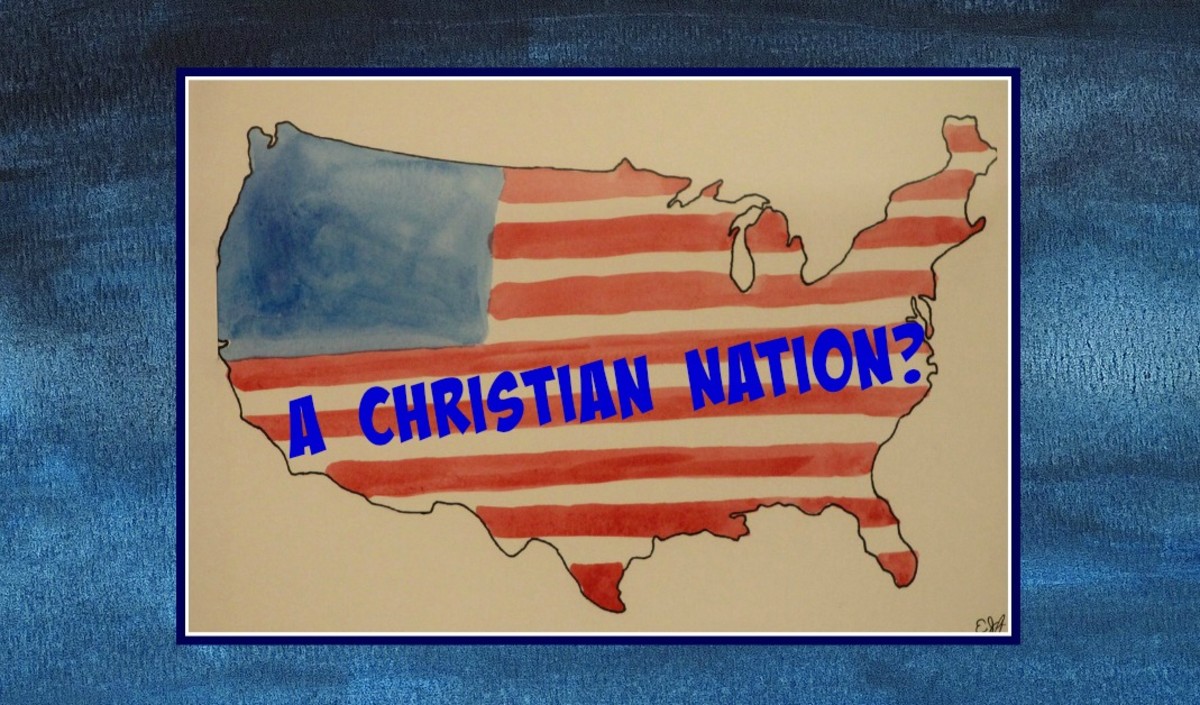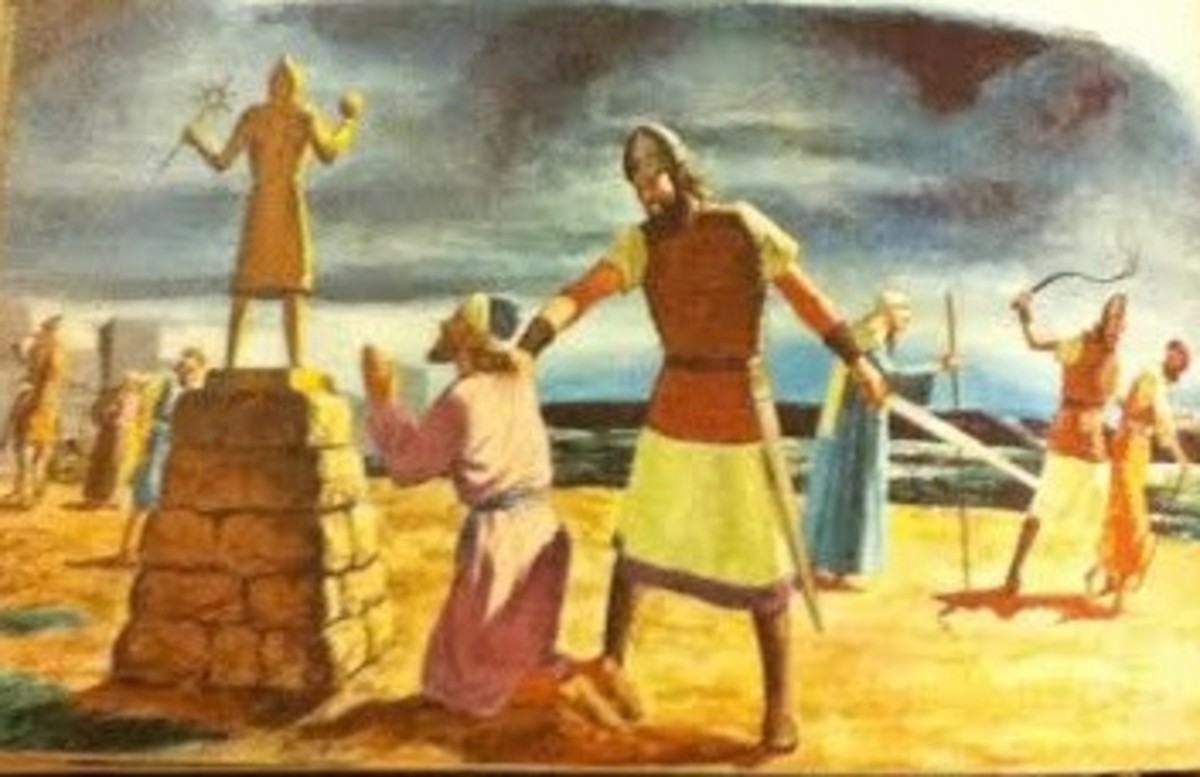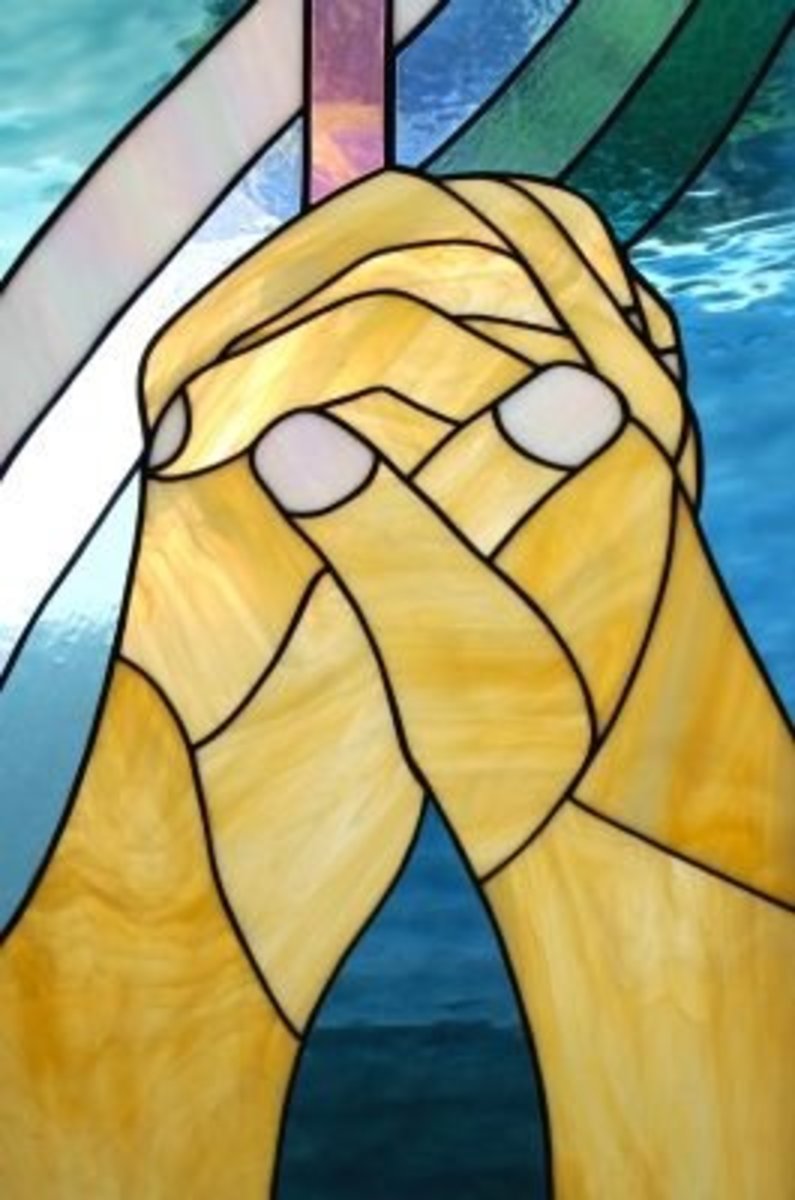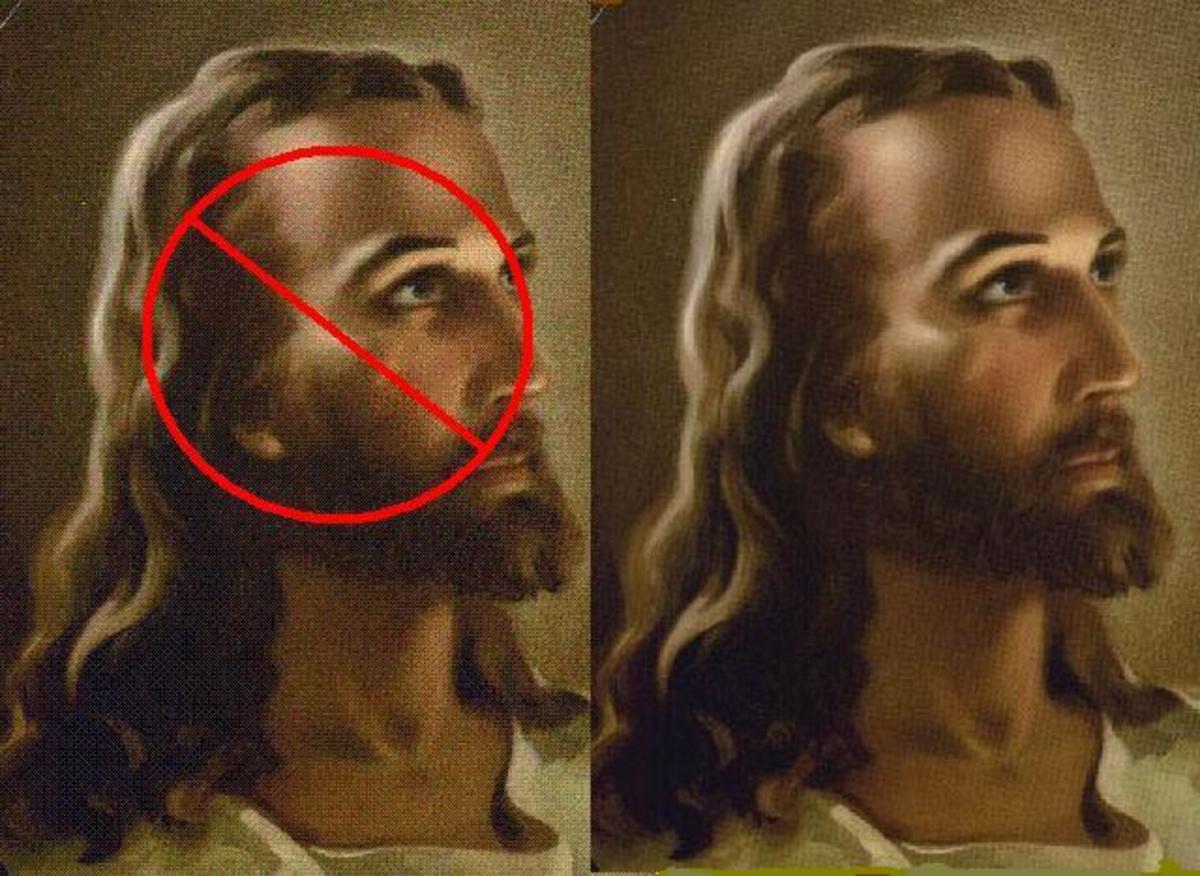Religious riots
Topic
Religious riots in Nigeria
Sub-topic
Religious riots in Nigeria: A focus on Muslims and Christians in Nigeria.
DEDICATION
To God almighty who made it possible for us to write this paper.
To those who had been persecuted and those still are being persecuted for religious sake.
To those who died in the various religious riots in Nigeria, and other places across the world. We pray that your death will not be in vain but will, someday, be the foundation of peace among religions.
PREFACE/ ACKNOWLEGEMENT
We can rightly say that it was divinely made for us to write on the topic, religious riot in Nigeria, not only because it is a religious matter that directly concern all Nigerian and, definitely, the world at large as the world heads towards becoming a global community; but also one of the writers is known as a crusader of religious tolerance. This can be confirmed by his various online write ups on hub pages, and other social networks; and his book “ it is time we truly know why Jesus wept” ( 2008) by N. K. David, published by author house UK Ltd.
Therefore it was divinely made that this subject be handled by those who are neutral to all religion. This is because the resolution of such a delicate matter needs people that would not be biased or influenced by any religious doctrine thereby leading to wrong conclusions; especially now that religious riots have continually threatened the peace of Nigerians. Most Nigerians wonder, if we can ever find a lasting solution which is necessary for our peaceful co-existence as a nation.
This paper was made to answer those questions and gave solutions to problem. Before the question was answered and solutions given, the paper made us to understand what religion is all about, its origin and why it has caused riots instead of uniting us.
We are grateful to the school of general studies University of Nigeria, Nsukka, and the coordinator of the course, peace and conflict resolution II (GSP 202) for they gave us the opportunity to write this paper and through it give our own contribution in conflict resolution. We also thank our lecturer, Mrs. Abada F. C. She made us work tirelessly in writing this paper. Finally we are grateful to those whose works helped us in writing this paper.
TABLE OF CONTENTS
TOPIC ................................................................................................................... i
Dedications ………………………………………………………………..............ii
Preface/ Acknowledgment ………………………………………………………iii
Table of content…………………………………………………………………….iv
CHAPTER ONE
1.0 Introductions ……………………………………………………………............1
1.1 What is Religions…………………………………………………………………1
1.2 The Origin of Religion………………………………………………………….2-3
1.3 God and Religion………………………………………………………….…..3-4
1.4 The Bridge Linking Some Religions…………………………………………..4-6
1.5 Why Man Needs Religion………………………………………………..………6
CHAPTER TWO
2.0 Brief History of Religion in Nigeria …………………………………………….7-8
2.1 Causes of Religious Riots between Muslims and Christians in Nigeria………..8-11
CHAPTER THREE
3.0 The Aftermath of Religious Riots …………………………………………….12
3.1 The way out of the situation………………………………………………..13-14
3.2 CONCLUSION ……………………………………………………………...14-15
REFERENCE:………………………………………………………………………16
CHAPTER ONE:
- Introduction: It is known that religion which is supposed to be man’s source of hope, love, unity, peace, justice, and friendship has led to various forms of conflicts. This can be intra-religious, inter-religious, or ethno-religious conflicts. The question is why has religion led to conflicts? In this paper, we shall focus on inter-religious conflict between muslins and Christians in Nigeria, and we shall use it to answer the question among other things. In this chapter we shall define religion, we shall then trace the origin of religion and how it started. The various religious ideas of God will be considered and we shall show some link between some religions. Finally we shall end the chapter by explaining the purpose of religion to man. In chapter two we shall consider why religion which should be a source of unity between man and God, and between man and his fellow man has turned to be a source of conflict between religions and between man and his fellow man. Religious riots in Nigeria are not without any serious consequences. The consequences are of various dimensions which include economical, political, social, and psychological consequences. In chapter three, we shall consider these consequences, and recommend solutions and conclude on the subject.
1. What is Religion?
Religion is among the words that have various definitions. This is because scholars can define it in various ways. For instances Ibenwa and Ngele (2010) quoting Yinger defined religion as “a system of beliefs and practices by means of which a group of people struggle with ultimate problems of human life. It expresses their refusal to capitulate to death, to give up in the face of frustration, to allow hostility to tear apart their human association.” They also cited Durkheim and defined religion as “ a unified system of beliefs and practices relative to sacred things that is things set apart and forbidden, beliefs, and practices which unite into a single moral community all those who adhere to them.” Again Ibenwa and Ayogu (2010) quoted Ballah as cited in OKeke (1998:53); they defined religion as “as a set of symbolic forms and acts which relates man to the ultimate conditions of his existences.” BBC English dictionary defined religion as “belief in a god or gods and the activities connected with this belief.” In this paper we shall define religion as “a belief that is peculiar to any person or group and may involve rituals, ceremonies, and other activities as a means of communication, appreciation, devotion, and subjection to spirit being or forces” the word “person” in the above definition is necessary because most religious concepts started with an individual before it was welcomed by group of people.
2. The origin of religion:
The history of religion is as old as man’s existence. Therefore nobody can say with absolute certainty when and how religion started; however, according to B. A. Robinson (www. Religioustolerance.org/religion-theory) there are two main theories of the origin of religion. These are:
i) Faith based theory:
This theory is of the view that religion started when man claimed to receive visions, revelation, and instructions from God. Such events usually occur to single individuals before they make it known to others. From this theory, one can right say that it is clear that many religious founders, even some sects of an original religion, have different claims to the messages and instruction they received from God which contradicts one another. Therefore its acceptance by anyone, even those that experienced it, is based on faith.
ii) Secular based theory :
This theory is of the view that a form of religion existed before man evolved from proto-human. That is to say human as proto-human had a religious system which was formed based on ideas. This was because proto-humans needed answers to some things they could not explain or understand like their environment, the sun, afterlife, moon, stars, among others. They also had the need to survive the uncertainty and brutality of the world therefore they needed protection and assurance. It was because of the need to find answers of the unknown and security that led to the formation of the first religious system with its priesthood. They used rituals to appease the various gods like the god of fertility. This theory hold that since religion was based on hunch, it led to different ideas of religion, religious rituals, and religious ceremonies among others.
Having considered the two theories, one can not say with absolute certainty if the proto-human received no instructions, revelations, or visions from God before setting up a religious system although it can be argued that they had no intuition. However it is known that man once worshipped things he feared or failed to understand. These things include stones and objects of various shapes, the sun, the moon, and the stars among others. Secondly no matter how we consider the origin of religion, we can say that both theories are based on faith because hunch, which is the base of secular theory, without faith is dead. Both theories was practiced by faith and it will be unfair for us to say that religion at its primitive stage did not serve its purpose because we know, at least to an extent, that it worked for them as they had faith in their various religious settings.
It is also important to note some men and periods in religious history. These are:
2000BC -------------------Abraham
1200BC---------------------Moses
1100-500BC--------------Vedas, Hindus compiled their holy test
565-483BC------------------Buddha
551-479BC------------------Confucius
200BC----------------------------Hindus book Bhagavead Gita is written
2-4BC-32AD--------------------Jesus
40-90AD----------------------------New testament written by followers of Jesus
570-632AD-----------------------------Muhammad recorded Quran for Islam
From: www.allaboutreligion.org
It is also important to note that some philosophers made contributions in religion. Socrates is said to be the originator of the word “soul” which he called “psyche.” There is a branch of philosophy, metaphysic, which is concerned with what is above the physical which only an initiate can understand. Some Philosophers are also known to search for the philosopher’s stone, the elixir of life.
The point is that man has always tried to find answers to most things including the earth and how it came to be. This quest for answers gave rise to various theories which include God as the creator of all things and therefore religion came to be.
4) God and religion:
Religion has its main belief in God yet there are differences in the religious concept of God. These different ideas of God are:
i. Pantheism:
This is a religious belief that holds that God exists in everything in nature and in the universe. From this view we can say that God is a part of all things in nature. The religions that have this view include Taoism, Buddhism, and Confucianism.
ii. Polytheism:
This religious belief holds that there are many gods. That is they belief that the god head is arranged in hierarchy order. Hindus has this view.
iii. Monotheism:
This religious belief holds that only one God exist. Christianity, Judaism, and Islam hold such belief. However, the Christian concept of trinity and its conflicting explanations among Christian sects placed Islam and Judaism as perfect examples of monotheistic religion. The concept of trinity is also a basis of debate between Muslims and Christians.
iv. Atheism:
This may not be considered a religious belief by some people but it is a newer belief that holds that God does not exist. This belief came up as men started to think deeper and asked questions which they seem not to find perfect answers, if God exists. Some of these questions may include, why do people, even children, suffer if a loving God exists? No explanations and answers could convince them that God exists so they have come to stay until they see reasons to believe in a loving God amidst of sufferings and other uncertainties.
5) The bridge linking some religions:
Despite differences in religious teachings and expect for some virtues like love, peace, justice, and kindness among others which virtually all religions share in common, surprisingly there are some religious individuals that are acknowledged by other opposing religion group however they there are recognized in different roles:
i. Judaism, Islam and Christianity:
These three religions belief and respect most of the prophets of the old testament of the bible like Moses, Abraham among others. However, they have conflicting view about Jesus Christ. Muslims belief that it degrades God’s majesty for him to have a son. But they accept Jesus as one of the prophets of God. Yet even among Muslims they have various views as regard to Jesus birth, resurrection, among others. While Christians believe that Jesus is a son of God, and the savior of the world whose birth was through a virgin, he was crucified and he resurrected. Some Christian sects see Jesus as being the same or equal to God. The Jews do not belief that Jesus is the expected messiah. They are still expecting the promised messiah.
ii. Hinduism and Christianity:
Hinduism existed long before Christianity but there is a surprising similarity between the life and works of Jesus in Christianity and the life and works of Krishna in Hinduism. The similarities were best shown by Kersey Graves, a Quaker from Indiana, in his book, “the world sixteen crucified saviours.” B. A. Robinson (www. Religioustolerance.org/ Implications of points of similarity between the lives of Jesus and Krishna) cited those similarities which are reproduced here: “
“6 & 45: Yeshua and Krishna were called both a God and the Son of God…56: Both were identified as "the seed of the woman bruising the serpent's head…58: Jesus was called "the lion of the tribe of Judah." Krishna was called "the lion of the tribe of Saki…60: Both claimed: "I am the Resurrection....66: Both were "without sin…
(From: www.religioustolerance.org)
6) Why man needs religion:
Religion has served various purposes to man. The moral values of any community can be linked to their various religious concepts and beliefs. It is for the same reason that the law of a society has a religious ingredient added to it. Therefore religion can be seen as a part of people’s culture which does not only guide their relationship with God and their fellow adherents but also guide their relationship with all men. Religious laws and commands like, do not kill, and an eye for and eyes, which is a retributive justice, is established in the constitutions of countries as man came together to form a complex society. Religion also gives man a sense of assurance and security by having the direction, protection, and support of a higher being. Religions help man to try to live so as to please his God and since God is good, man is expected to live a good life.
CHAPTER TWO
1. Brief history of religion in Nigeria: there is some evidence that suggests that Nok people had a form of religion that was similar to the Egyptian worship of Osiris. However, it can be considered as part of African traditional religion system which was prevalent before foreign religion came to Africa. The Portuguese were the first to bring Christianity to Benin and Warri in the 15th century; however most Christian missionaries came by sea in the 19th century. Islamic religion is recorded to have entered through the Boron kingdom during the trans-Saharan trade in the 11th century. It then entered the Hausa land through the Wangarawa. By 15th century Islam had entered most parts of, the now northern Nigeria but the Usman Dan Fodio Jihad of 1804 helped to strengthen the religion and its leadership in the northern Nigeria consequently it was not easy for our colonial masters to introduce Christianity into the northern part of Nigeria because of the organized religious system. However despite the difficulties the north and other regions were merged to form what is today called Nigeria.
Nigeria currently have 50.4% Muslims, 15% protestants, 13.7% catholic, 19.6% other
Christians and 1. 4%. Other religions which include Hinduism, Judaism, Bahai faith, Chrislam
(A combination of Islamic and Christianity), grail movement among others (www.en.wikipedia.org/wiki/nigeria).
Islamic and Christianity are the two major religions in Nigeria. We shall briefly look at their history.
i. Christianity: Christianity is based on the teachings of Jesus Christ. After his death, followers preached his gospel and they were persecuted and killed at various places. The earliest Christians were known as Gnostic Christians and some of their teachings like the “divine spark” are no longer taught in most current Christian teachings. Emperor Constantine, after his claimed vision, legalized Christianity and the catholic church formed and the first bishop of Rome to bear the title of pope was Boniface iii in 607AD ( www. Ourcatholicfaith.org). however, the first person to use the word Catholic which means “Universal” was Ignatius of Antioch in his letter in 107AD. (www.wiki.answers.com/q/who founded the roman catholic church) martin Luther king (sr.) was the first protestant to separate from the catholic church then other protestants followed and today we have various Christian sects, the church belief in the holy bible of the old and new testament which is their guide.
ii. Islam: Muhammad claimed to have received visions and revelations in the 7th century, few years after Catholic Church was formed. He recorded the Quran which is the guide of Muslims. His teachings were rejected in his hometown so he moved to medina. He had followers. The two earliest Islamic sects were Sunni and Shia Muslims which came to be after a blood bath in leadership struggle but today other sects have come to exist. The five pillars of Islamic faith are
(1) Shahabad (profession of faith)
(2) Salat (ritual prayer)
(3) Zakat (alms giving)
(4) Ramadan fast
(5) Pilgrimage (Hajj)
2. CAUSES OF RELIGIOUS RIOTS BETWEEN MUSLINS AND CHRISTIANS IN NIGERIA.
It is now known that the foundation of Nigeria was wrongly laid. The numerous cases of religious riots in Nigeria are among the consequences of the wrong foundation. Our colonial masters were aware of the religious differences between the regions which they merged as Nigeria. They also witnessed various forms of resistance in their administration’s effort to spread Christianity to the northern region yet they merged the various entities. This shows that they main interest was not on missionary work and the spread of Christianity but on what they could benefit economically. After that the two major conflicting religious ideologies were unreasonably brought under one roof without necessary planning to avoid conflicts.
THE MAJOR CAUSES OF RELIGIOUS RIOTS INCLUDE:
i. Non secular constitution: section 260 (1) and 275 (1) of the Nigerian constitution made provision for establishment of Shari court in federal capital territory and for any state that requires a Shari court of appeal. This is so despite that the same constitution guaranteed the freedom of religion to all citizens. Shari is an Islamic law therefore it means that the state is not secular by adopting any religious law. We can ask how a non secular state can protect the rights of those religious beliefs it opposes. B. A. Robinson quoted john Shelby sponge, a retired bishop of the Episcopal Church
"Religion is primarily a search for security and not a search for truth. Religion is what we so often use to bank the fires of our anxiety. That is why religion tends toward becoming excessive, neurotic, controlling and even evil activities to be encouraged not to be feared.. . A true and healthy religious system will encourage each of these activities. A sick and fearful religious system will seek to remove them." (www.religioustolerance.org/religion today).
A religious government is most likely to be cruel to those that fail to adhere to her religious beliefs. That is why imposition of Shari law in the northern part of the country is not good for national integration because it will give one religious group engenders that they own a particular state. Therefore they would want everything to be done according to their laws. It is this kind expectation that leads to religious riots when people of other religion refused to be subjected to another religious law, outside their own.
ii. Insecurity: Nigeria lack good security network that can stop religious riots before it escalates. Unlike in developed countries where police and other law enforcement agencies can get to riot scenes or crime scenes in less than five minutes to keep the situation under control. It usually takes hours, at times days before the Nigerian police arrives at riot scenes and before then the damage would already be done and many lives lost. Unfortunately, more death counts usually continue even after the police have been deployed to the ground, and it may take military intervention to stop religious riots. This shows lack of good security.
iii. Lack of due process: even after religious riots had occurred, the government would not follow due process to investigate the case and its cause so as to punish the offender. Consequently, the promoters of religious riots continue to enjoy liberty and promote more religious riots. This is because government does not seriously investigate the causes of religious riots to prevent subsequent occurrence.
iv. A sense of common enemy (stereotype): this is the result of misdirected grievances that leads to religious riots because of a feeling of common enemies. For instance the November 18th 2008 riot in Jos was because of alleged rigging of local government election which had nothing to do with religion yet it resulted to death and churches and mosques were burnt. Another instance is the 2006 religious riot in Maiduguri and its reprisal attack in Onitsha because of caricature publication of Prophet Mohammed by a Danish newspaper. The publication was made outside Nigeria yet it led to religious riot in Nigeria because they already see each other as common enemies. Muslins in some other countries only protested.
v. Lack of respect for sacred things of other religions: some religious fanatics do not respect the sacred things of other religions. This has caused religious riots in Nigeria.
For instance the 1990 Kano riot which started because of an alleged defecation on the Quran by Gideon Akaluka.
Secondly the January 17th 2010 Jos riot was caused by muslins youths that attacked Christian worshippers in Nassarawa Gwon on a Sunday which is a sacred day for Christians.
vi. Religious intolerance: most Christians and muslins do not tolerate their religious differences this has caused religious riots. For instance the October 1991 Kano riot was caused by muslins that claimed to protest the Christian crusade of Evangelist Reinhard Bonnke. There are other cases that are caused by similar intolerance of other religions.
vii. Lack of teaching religion pluralism: most Christians and muslins do not believe in religion pluralism. They insist that only their own religion or even their religious sect is the only true path to God. This kind of teachings results to hatred of other religions and thereby religious intolerance which causes riots.
viii. Selfishness: we can ask ourselves, each time we want the freedom to freely practice our religion without hatred or persecution by others , do we sincerely want others to have the same freedom? The answer to this question would explain why selfishness has caused religious riots because each group wants to expand and subdue the other.
ix. Wrong concept of martyrdom and jihadist: people have various religious interpretations to justify virtually all their actions even bad actions. Therefore the idea of Martyrdom and jihad has been used to justify most religious riots because those that fought and died in the process are believed to go to paradise. The early Christians were martyred, they did not fight but today muslins belief that they can kill others in jihad as martyrs even when their victims are innocent and did not actually provoke them.
x. Social injustice: social injustice results whenever justice is denied to people. This is the situation in Nigeria where the government and individuals do not respect human rights. Therefore such abuses of human rights include the abuse of religious rights which is among the causes of religious riots in Nigeria.
xi. Corruption: the high level of corruption in the Nigerian government has helped to foster religious riots in that public office holders seek any available means of embezzling public fund. Therefore some of them use religious riots as means of making money because after the riot damages will be paid, investigation panel will be set up among other things. Then it is easier to overestimate cost and make money without doing a dept analysis to find out the cause of the problem and put it on check.
xii. High level of crime and youth unemployment: the September 17th 2001 Jos riot which spread to Bauchi, Lafia, and, Nassarawa with reprisal attack at Aba, Umuahia, and Owerri was said to be caused by a Christian woman that attempted to cross a street barricaded by muslins. Those muslin youths would not have been engaged in such activities if they had a job. They would be busy in their various places of work, and also their counterparts in other states that escalated the riot did so because they had no employment. Most of them see religious riot as an opportunity to make money by stealing under the pretext of riot. This is because of high crime level in Nigeria which made youths to use every opportunity as a ground for crime.
xiii. The unreasonable and uncontrolled zeal to save the alleged lost souls: most Christians and muslins have the unreasonable and uncontrolled zeal to save those, they claim, are lost souls. This has resulted to unreasonable actions and tendencies of using force to convert unbeliever like some muslins have in views. The Christians on their own part preach at unreasonable places like close to a muslin mosque thereby disturbing the peace of other worshippers.
CHAPTER THREE:
- THE AFTERMATHS OF RELIGIOUS RIOTS INCLUDE:
i. Loss of lives and properties: many Nigerians have died because of religious riots and properties worth millions were also lost in the process.
ii. A set back to national development: religious riots are hindrance to national development because it creates an unfavorable ground for sustainable development. Not only will properties and other agents of national development be destroyed but it also discourages foreign investor.
iii. Reduces Nigerian manpower: the results of religious riots have shown that lives are lost and many Nigerian are maimed for life. This reduces the manpower of our nation as able men and women which are talents and potential talents are lost in the process or are disabled for life.
iv. Hindrance to national integration: Religious riot is an obstacle to national integration as the various religious groups will not feel safe outside their ethnic group because of fear of religious riots.
v. Causes enmity and hatred: many people are psychologically affected by religious riots and they likely develop hatred and enmity for their opponents. This will easily result to further riots as each group is easily provoked as common enemies.
vi. Poverty: Religious riots cause poverty and sufferings to those that lost their properties, investments, homes among other thing in the process.
vii. Poor human right record and bad national image: The international communities usually consider our human right record poor. The reason includes religious riots which is an abuse of the freedom of religion. This has given Nigeria a bad national image and poor human right record.
viii. Political mistrust: The incessant case of religious riots has made Nigerian to wonder which ethnic group is fit to rule them fairly. This is because the various religious groups may not trust any other leader expecting their own. This is among the reasons the minority groups are still waiting for a chance to lead the nation.
- The way out of the situation:
We have seen the consequences of religious riots and its strength of denying us national peace and unity. The solution to the problem would be to address those vital issues that usually cause the problems. However for effective and long term solution we recommend:
i. Teaching of religious pluralism: The various religious leaders do not have to wait after a religious riot to come and say “we all serve one God.” Just to calm the situation and go back to business as usual. The various religious leaders should learn to teach their followers in their places of worship that all good (non violent and life seeking) religion leads to god but that they accepted whichever teaching they belief because they consider it more suitable. They have to show their followers that they respect other religious views.
ii. Teaching of religion freedom in the various religious setting: the various religious teachers should be asked to teach their follower that others have the right to practice any religion they choose without interference by anyone. Many Nigerian religious followers do not know that it is part of the constitution and the right of all human.
iii. Inter-faith dialogue: the various religious leaders should meet from time to time to reflect on interests that are collectively shared by all Nigerians and on how to help make such interests a reality.
iv. Secular government: Government should not support any religion or religious law because it gives the people a sense of discrimination by the state.
v. Focusing on a common ground of goodwill: Virtually all religion teach virtues like love, peace, unity, justice, fairness, equity among others. These are virtues the various religious groups should teach more. They should not dwell more on their differences in values.
vi. Religious tolerance: The various groups should learn to tolerate and accommodate others even when they think their religion is better or superior than others. They better accept it as ignorance than fight or use force to convert people.
vii. Inter-faith marriage: the various groups should open their doors for inter religious marriages. It will help us to understand our differences better and ways to handle those differences as a family.
viii. Strict punishment for offenders: Government should punish anyone or group found to foster religious riot. This is because it is an abuse of the fundamental human right of others. Therefore, adequate investigation should be carried out and punishment meted to offenders without fear or favor.
ix. Provision of security: Government should step up securities to stop religious arguments or misunderstanding at its early stage before it leads to conflict.
x. Use of early warning signals: Government and individuals should learn to use the early warning signals to prevent religious riots. This signals include angry comments of disapproval, mob gather among others. This will help to prevent reprisal attacks and vengeance.
xi. Youth empowerment: Government should create Jobs and other opportunities for youth empowerment so that the youth will not have time to be part of religious riots.
xii. Involvement of Non-governmental organization: NGOs are handling cases like human right abuses, discrimination against women among others. There is the need for non-governmental organization made of members of various religious groups to help in handling cases of religious riots and educate people on religious tolerance. This is because religious riots are caused by an abuse of human fundamental human rights.
3. Conclusion: Religion is as old as the history of man’s existence or even older than man. It is no gain saying that religion which was ones man’s sure means of unity, hope, guidance, and protection when man lived in a less complex society, has always been a sources of conflict in human history. This is because it is not easy to change religious laws which were passed from generation to generation so whenever a change comes, it brings persecution, killings and hatred. Man can change any other law but man hardly changed his religious laws because he believes it came from God but even when man claim that God had changed the laws others usually fail to agree. Therefore most religions suffered persecution, condemnation, and even death at their early stages yet and unfortunately the same religion that was once persecuted always tend to persecute, condemn, or even kill people of other religion whenever they grow in strength and number. Therefore the persecuted had always become the persecutor because religion did not learn from history, even from their sufferings and rejections. Now it is no gain saying that religion has failed man, that is why some religious group now claim that they are not a religion but a way of life but the greater question should be, if those that believe in God should fight over his laws and ways, then how will they blame those that said, there is no God? The problem is not religion but the fanatics that use religion as a weapon against others.
Nigeria needs peace and unity, if we are to stand as a nation. Other countries that passed this stage of religious conflict did so because they left their personal selfish interest to work for the interest of their nation through collaboration. Religion is selfish when any religious group considered their own personal interest and ignores the interest of others. Therefore all religious groups in Nigeria should keep their personal interests and collaborate with one another to ensure that peace, unity, progress, love, justice, fairness, equity, and above all religious tolerance is achieved for our national interest.
REFERENCE
1. B. A. Robinson: Implications of points of similarity between the lives of Jesus and Krishna (www.religioustolerance.org)
2. B. A. Robinson: Religion: why it started ( www.religioustolerance.org)
3. B. A. Robinson: Religion today (www.religioustolerance.org)
4. Ibenwa C. N. and Ayogu C. N. (2010) “religion and inter-communal crises: A focus on
Northern nigeria.” In Nnadozie O. U. (ed.) Topical issues in social
Sciences, Nsukka, Rek books.
5. Ibenwa C. N. And Ngele O. K.( 2010) “ Religion, Ethnicity and peaceful co-existence in Nigeria” I n O. U. Nnadozie and A. O. Uzuegbunam (Ed.) issues in peace and conflict Studies and other social sciences, Nsukka, Bels book.
6. Iremeka, Ukamaka Felicia (2009) “justice as the bases for peace in human development: A challenge to the church in Obiora Anichebe (ed.) issues in Nigeria peoples and culture, 9th edition, Nsukka, Afro-Orbis publication.
7. Kevin C. Aura (2008) “understanding the meaning of philosophy” in Obiora Anichebe (ed.) logic, philosophy and human existence, Nsukka, Afro-Orbis publication.
8. Madukwe C. I. (2009) “ islam in the culture of Nigerian people: a survey” in Obiora Anichebe (Ed.) Issues in Nigerian people and cultures.
9. Michael I. Izukanne (2007) “History and national integration: the Nigerian experience”, Nsukka, university of Nigeria press.
10. Religion in Nigeria: www.en.wikipedia.org/wiki/religion in Nigeria.
11. Rev. Fr. Barr. Oguejiofor C. P. E. (2010) “tribes and tongues in Nigeria” Enugu, Professor Press.








